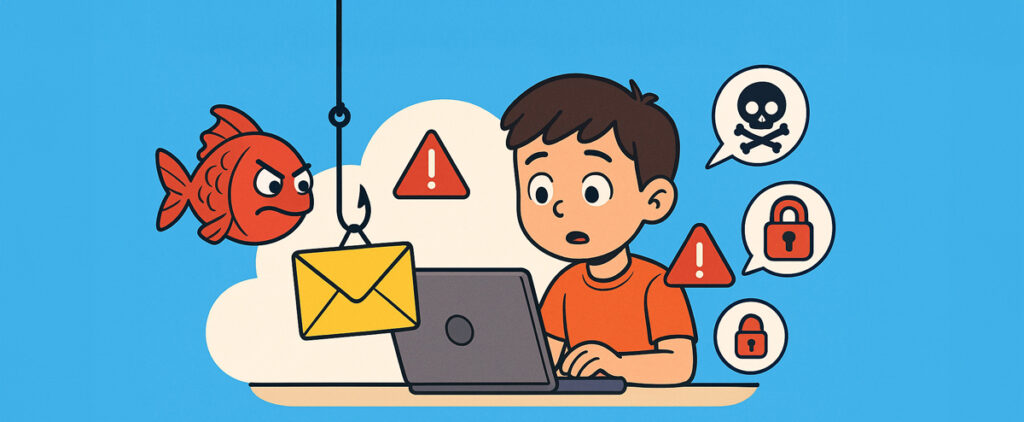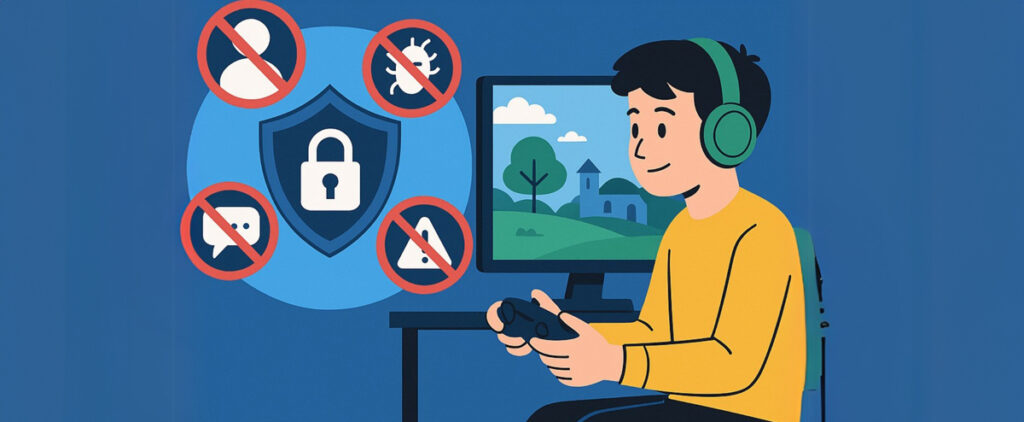
F or today’s kids, friendships are often built in a world made up of likes, emojis, and DMs. Digital life isn’t all bad, and while that may seem harmless, it still comes with hidden risks we can’t ignore. As parents, you can be guiding them
instead of only guarding them, because your kids need help balancing the online with the offline.
Potential Benefits of Social Media
When used wisely, social media can help your child:
- Stay in touch with friends and family
- Explore hobbies and interests
- Learn new skills and share what they’re learning
- Find identity and support (especially for marginalized or special needs groups)
- Feel a sense of belonging in online communities
Potential Drawbacks of Social Media
1. Less Talk, More Text = Less Confidence
Social skills grow with real-life practice. When friendships happen mostly online, there’s less emotional risk, and consequently less growth. Talking in person takes courage, especially when there’s a disagreement. But those difficult conversations help kids grow emotionally. No wonder many kids now say phone calls feel “too intense.” If they don’t get enough practice talking, they may grow into adults who feel nervous even in regular conversations including job interviews, romantic relationships, or even simple phone calls.
2. Cyberbullying and the Pressure to Be Perfect
Cyberbullying happens online through messages, images, or videos. 64% of teens report seeing hate-based content. Social media makes it easier to be cruel. Kids may say things online they’d never say face-to-face. As pre-pubescent or teenaged children social media gives them a place to lash out, that often happens in unhealthy ways.
There’s also the constant pressure to look perfect. From Instagram to Snapchat, kids carefully edit their photos, their captions, and their entire online identity. Everyone seems happier, cooler, more successful. This can leave your child feeling left out or “not good enough.” And that’s a dangerous hit to their self-esteem.
3. Hyperconnected but Lonely
Kids today are never really alone. Apps track their location, and group chats buzz 24/7. New “etiquette rules” on platforms like Instagram (e.g., tagging certain friends) can fuel exclusion, especially among preteens and girls. Kids may feel rejected or “ranked” based on social media behaviour.
For example, when someone doesn’t reply to a message? That silence can feel like rejection. It’s easy for a teen to spiral: “Why didn’t they respond? Are they ignoring me?” Worse, friendships can end with a simple “seen” and no closure. This emotional uncertainty leaves kids confused, hurt, and insecure.
Dangers of Social Media
1. Online Predators
- Some adults use social media to target kids for exploitation or scams.
- Nearly 6 in 10 teen girls have been contacted in uncomfortable ways by strangers.
2. Dangerous Trends
- Viral challenges can lead to injury, legal trouble, or even death.
- Kids often lack the judgment to see the risks.
3. Mental Health Tics
Constant social media use has been linked to:
- Stress-related tics
- Increased anxiety, depression, irritability
- Sleep issues and low self-esteem
4. Addictive Behaviour
- Pressure to keep up with likes, followers, and streaks can create stress.
- Extended screen time can worsen mood and disrupt routines.
5. Cyber Crime Risks
Social media can expose children to serious cyber crimes such as:
- Extortion (e.g., sextortion)
- Hacking & identity theft
- Revenge porn
- Online grooming & abuse
- Distribution of offensive or illegal content
Even simple actions like clicking on a link or joining a group can open the door to exploitation.
What Can Parents Do?
1. Model Good Behaviour
Start with yourself. Yes, really. Kids learn from what they see. If you’re glued to your screen, they’ll think that’s normal.
- Create phone-free zones at home like during dinner time, bedtime, or during car rides.
- Greet your child properly when they return from school with no phones in hand!
- Your habits shape theirs. Practice what you preach.
2. Delay Social Media if You Can
Just like you wouldn’t hand over the car keys to a 13-year-old, don’t rush to give them a phone or social media account. The later they start, the better they’ll handle it.
If they’re already online, be present. Follow them on platforms, but don’t snoop unless there’s a strong reason. Trust builds confidence. Spying breaks it.
3. Limit Screen Time
- Aim for no more than 2 hours/day.
- Use parental controls or screen time apps.
- Involve your child when creating these guidelines. It helps them feel heard and encourages ownership of their online behaviour. Set clear boundaries with your child, not just for them.
4. Watch for Red Flags
Social media use might be a problem if you notice:
- Changes in sleep, appetite, or mood
- Withdrawing from friends/family
- Increased anxiety, depression, or low self-esteem
- Obsessive checking of likes, comments, or followers
5. Teach Digital Literacy
- Help your child question what they see.
- Explain how to spot fake news, scams, and manipulative content.
- Encourage them to pause before posting, especially when emotional.
6. Protect Private Information
- Never share passwords, phone numbers, addresses, or financial info online.
- Avoid public Wi-Fi for logging into social accounts.
7. Consult a healthcare professional if your child:
- Lies about or sneaks time on social media.
- Uses it compulsively despite wanting to stop.
- Experiences declining school performance, sleep issues, or withdrawn behaviour.
- Shows signs of anxiety, depression, or self-harm.
8. Be open to honest conversations
- Have open, honest conversations. Ask why they want to use certain apps and check in regularly about what they’re seeing.
- Make sure they know they can come to you if something online upsets them, without fear of punishment. Let them know they can come to you without fear if something upsets them.
- Ask your child how social media makes them feel. Online influencers can glamorize harmful behaviour. Some content may romanticize violence, self-harm, or eating disorders, often escaping platform moderation.
- Know what apps they’re using. Scroll with them sometimes. Discuss trends or viral content they’ve seen. Encourage your child to think critically about the content they consume.
- Children may accept what they see online as truth. Teach them to recognize unrealistic portrayals of beauty and lifestyle. This can lead to low self-esteem and body image issues.
- Share your values and expectations. Emphasize empathy and respectful behaviour, both online and offline.



 Minors
Minors 







